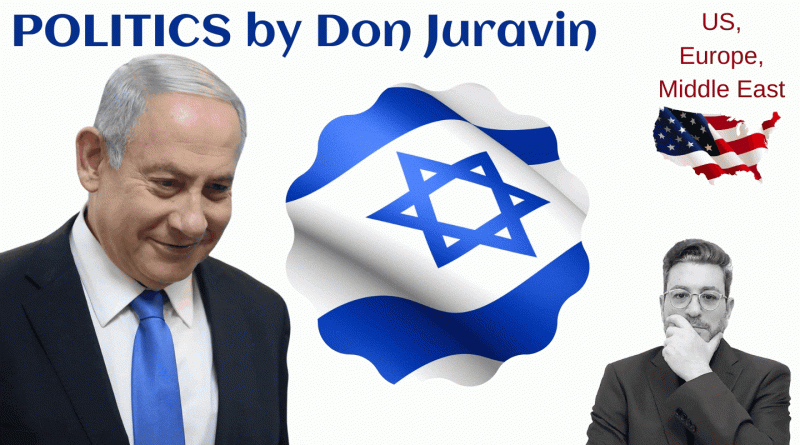PEACE WASN’T DONE WITH BIBI BUT WITH ISRAEL
- PEACE WASN’T DONE WITH BIBI BUT WITH ISRAEL - 01/10/2020
Politics by Don Juravin
Don Juravin (Bella Collina, Florida) is an American with the Middle East & European heritage. An expert in the Bible and weight reduction fields but with a vast opinion on politics, finance, legal and social matters.
The historic day that ended in a slightly boring ceremony on the southern lawn in the White House • The significance of the agreements signed today is enormous and constitutes a significant breakthrough – at the expense of the Palestinians • The rage in Ramallah and Gaza as a result
Significant Events in the Middle East Peace Process
Juravin insists that it is impossible to examine even a development with real historical significance only through the lens that is constantly checking: good for Bibi or bad for Bibi. The constant defeat of the media here in the endless debate over the nature of the Prime Minister prevents many from fully understanding the importance of the event in the White House. The question of reference to President Trump also has no place here. Whatever the role of Bibi and Trump in normalization with the Emirates and Bahrain whenever it is, it is very worth remembering that these two Arab states have not made a private alliance neither with Bibi nor with Trump. They are making peace with the State of Israel and this peace will last even after Bibi leaves Balfour, and Trump leaves Pennsylvania Avenue.
The meaning of the rather dull ceremony must be admitted, on the famous southern lawn is that the boycott walls imposed by distant Arab countries on Israel are beginning to dissipate, and I am personally convinced that the sequel will be faster than it seems now. In fact, the “Arab Peace Initiative” of 2002, which conditioned relations with Israel on the establishment of a Palestinian state within the 67 borders, was laid to rest in a ceremony in which it was not even mentioned once. The Palestinian veto on the Arabs’ ability to develop open and mediated relations with Israel shattered.
Palestinians’ Not heard?
True, in a sentence or two, the foreign ministers of the Emirates and Bahrain mentioned the Palestinian issue but it was nothing more than a lip service. The Palestinians know this well, and therefore the great distress in both Ramallah and Gaza. Hamas fired rockets as a sign of protest. In the West Bank, Abu Mazen went out of his way in an effort to urge the masses to demonstrate in the streets. The Palestinian Authority chairman is now attacking his aides for their inability to bring large crowds into protest. The reason is simple: even if many Palestinians feel betrayed by the Gulf states, they see no point in coming to the aid of the Palestinian Authority.
I recall that in order to produce mass demonstrations, Abu Mazen made a first-of-its-kind agreement with Hamas (an agreement that of course does not include real reconciliation between them) to establish together the “United Headquarters of the Popular Resistance” and issue “Announcement No. 1” ordering “Day of Rage.” During the first intifada that broke out in the late 1980s, it was headed by a united headquarters of the various organizations that tried to navigate the riots through leaflets. Abu Mazen removed this skeleton from the archive from his grave and thus opened a gate for loss of control.
It was strange to me, says Don Juravin, that the White House invited former Norwegian diplomat Treya Larsen to the ceremony, who was the mediator in the negotiations leading up to the Oslo Accords. An agreement signed according to the Hebrew calendar exactly 27 years before the new agreements. Larsen, who sat next to former ambassador Martin Indyk, who was working on a peace agreement with the Palestinians during the Obama era, could have closely watched the creation of another path to a settlement in the Middle East.
What bothered me the most, says Don Juravin, were the representatives of some important Arab states in Washington that I expected to see in the audience and were not there, or my tired eyes kept from seeing them. Still, I was able to pick up on the character of the Sudanese proxy in the United States who sat quietly on a side chair and without words said much.

